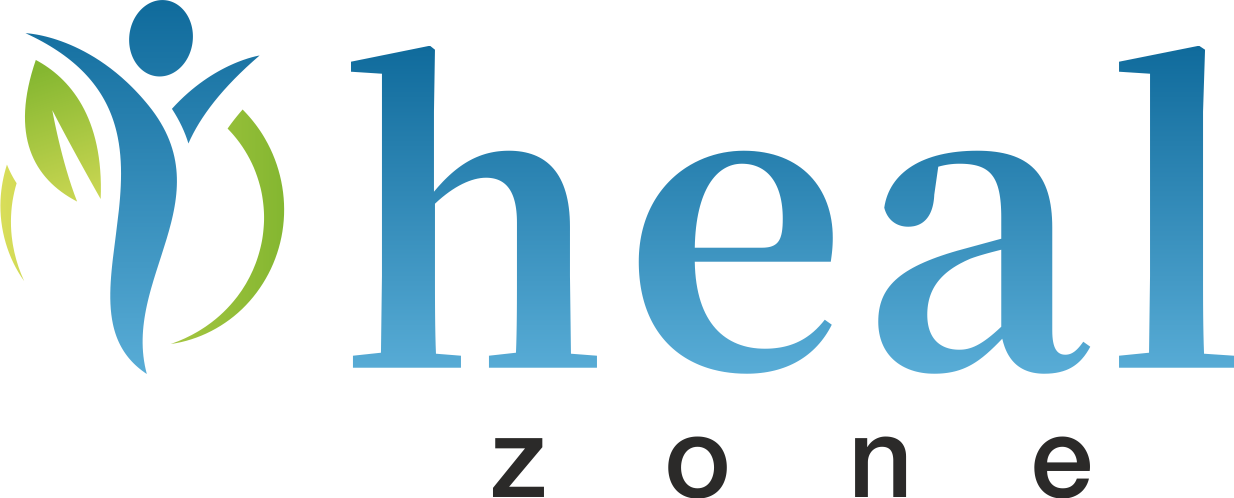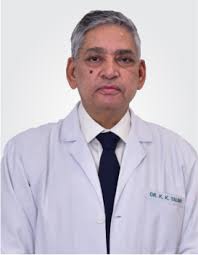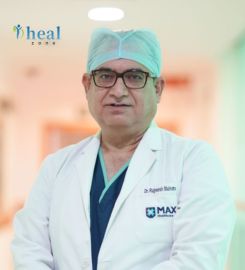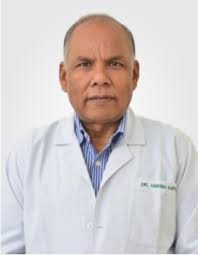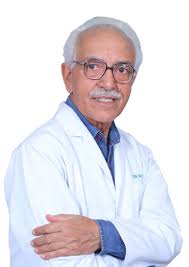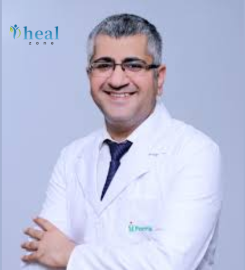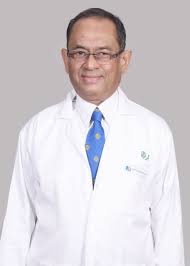What is Aortic Dissection Repair Surgery and when is it needed?
Aortic dissection repair surgery is performed to treat a serious and often fatal condition called aortic dissection. In this condition, a tear forms in the inner layer of the aorta, the main artery that carries blood from the heart to the rest of the body. This allows blood to flow between the layers of the aortic wall, forcing them apart and compromising blood flow to critical organs.
This surgery becomes necessary when the dissection is life-threatening, especially in Type A dissections (involving the ascending aorta) and complicated Type B dissections (involving the descending aorta with rupture, organ compromise, or rapid expansion).
Common causes or risk factors include:
- Uncontrolled high blood pressure
- Connective tissue disorders like Marfan syndrome
- Atherosclerosis
- Chest trauma
- Previous cardiac surgeries
- Congenital abnormalities of the aorta
Immediate surgical intervention can prevent rupture, stroke, heart failure, or death. In some cases, endovascular repair may be preferred, especially in high-risk or elderly patients.
What are the different types or techniques of this treatment?
Aortic dissection repair can be performed using open surgical or endovascular techniques depending on the dissection type, patient condition, and anatomical considerations.
Open Surgical Repair:
This involves opening the chest through a sternotomy, removing the damaged aortic segment, and replacing it with a synthetic graft. It is the standard for Type A dissections.
Thoracic Endovascular Aortic Repair (TEVAR):
In this minimally invasive approach, a stent-graft is inserted through a catheter, usually via the femoral artery, to seal the dissection and reinforce the aorta. It is commonly used for uncomplicated or select complicated Type B dissections.
Hybrid Procedures:
These combine open and endovascular techniques, particularly useful when the dissection extends through both the ascending and descending aorta or involves the aortic arch.
Valve-sparing Procedures:
If the dissection affects the aortic valve but the valve itself is not diseased, surgeons may preserve the valve and repair only the aorta.
Each technique has different indications based on the dissection location, patient’s stability, and comorbid conditions.
What is the standard treatment protocol for international patients in India?
International patients undergoing aortic dissection repair in India can expect a streamlined, well-managed care process tailored to urgent or semi-urgent cardiac cases.
Pre-arrival Consultation & Planning:
- Patients or referring physicians share CT scans, medical history, and symptoms. Indian medical teams provide a detailed treatment plan and cost estimate.
Arrival & Preoperative Evaluation:
- Upon arrival, the patient undergoes detailed diagnostics including CT angiogram, echocardiogram, ECG, and blood tests. Multidisciplinary teams assess surgical risks and anesthesia fitness.
Surgery & In-Hospital Recovery:
- Emergency cases are operated on immediately.
- Elective cases are stabilized first.
- Post-surgery, ICU monitoring is done for 2–5 days, followed by ward recovery.
Post-Discharge Care:
- Patients receive discharge summaries, medication instructions, and lifestyle guidance. Follow-ups are scheduled via teleconsultation or local physician collaboration.
Travel Support & Accommodation:
- Medical tourism agencies or hospitals help with airport pickup, visa assistance, and accommodation for accompanying family.
This structured protocol ensures minimal delays and better outcomes for international patients.
What kind of devices, implants, or surgical tools are used?
The choice of devices and tools depends on the type of surgery (open vs. endovascular). India uses internationally certified equipment that matches Western standard
Synthetic Grafts:
- Dacron or Gore-Tex grafts are used to replace the dissected aorta in open repair.
Stent-Grafts for TEVAR:
- Self-expanding metallic stents covered with graft material
- Brands include Medtronic, Cook Medical, Terumo, and others.
Cardiopulmonary Bypass Machines:
- Used in open heart surgery to maintain circulation and oxygenation.
Imaging Tools:
- Intraoperative transesophageal echocardiography (TEE)
- Fluoroscopy for real-time imaging during stent placement
Surgical Tools:
- Advanced aortic clamps, synthetic sealants, and precise cutting/scalpel instruments.All implants and materials are either imported or manufactured under strict quality guidelines, ensuring long-term durability and biocompatibility.
Why should international patients choose India for this treatment?
India is globally recognized as a leader in affordable and high-quality cardiac surgeries, including aortic dissection repair. Here’s why thousands of international patients choose India every year:
- Board-certified cardiac surgeons with global experience and advanced training.
- State-of-the-art hospitals equipped with hybrid cath labs, cardiac ICUs, and advanced imaging.
- 24/7 emergency care and rapid response for acute cases.
- Zero wait times, especially for urgent surgical needs.
- Multilingual patient support including translators and international patient managers.
- JCI- and NABH-accredited hospitals that follow international clinical protocols.
- Cost-effective packages inclusive of hospital stay, surgery, medications, and post-op care.
India offers a unique combination of affordability and quality, making it a preferred destination for patients from Africa, the Middle East, Southeast Asia, and even Europe.
Why choose Healzone for safe and stress-free treatment in India?
Healzone offers a seamless medical tourism experience for international patients seeking complex surgeries like aortic dissection repair. Choosing Healzone means:
- Pre-arrival medical coordination including document sharing, reports review, and second opinions.
- Fast-track treatment planning, with appointment booking and visa invitation letters.
- Logistical support: airport pickup, hotel arrangements, translator assistance, and hospital transfers.
- Personalized treatment plan from accredited surgeons and hospitals.
- Dedicated care coordinators who stay in touch throughout the journey.
- Post-treatment follow-ups via online consultations and treatment summaries.
- Transparent cost estimates, so patients know exactly what they will pay—no hidden charges.
Healzone bridges the gap between top Indian hospitals and international patients, ensuring a safe, affordable, and hassle-free treatment journey from arrival to recovery.
What is the recovery process and post-op care timeline?
Recovery after aortic dissection repair is a gradual process and varies based on the surgical technique, patient’s age, and overall health. Recovery involves hospital stay, home rest, and ongoing cardiac care.
Immediate Post-Surgery Recovery:
- ICU stay (2–5 days): Patients are closely monitored for heart function, bleeding, blood pressure, and kidney output.
- Hospital ward (5–9 days): Patients are moved to a step-down ward where they begin walking, eating light meals, and breathing exercises. Wound care and medications are managed daily.
At-Home Recovery:
- Most patients are discharged within 7–14 days of surgery.
- Physical activity is restricted for the first few weeks.
- Patients are advised to avoid lifting heavy objects, driving, or vigorous movements for at least 6–8 weeks.
- Pain management, antibiotics, and blood pressure medications are continued as prescribed.
Follow-Up Care:
- Follow-up appointments are typically scheduled at 1, 3, and 6 months post-surgery.
- CT angiograms or echocardiograms are done to monitor graft function and detect any complications early.
- Cardiac rehabilitation programs may be recommended for physical and emotional recovery.
For international patients, many Indian hospitals offer teleconsultation options for follow-up, eliminating the need for repeated travel.
How should international patients prepare for this treatment in India?
Preparation is essential for a smooth medical journey. Here's how international patients can prepare:
1. Medical Records & Imaging:
- Submit recent CT scans, echocardiograms, blood tests, and detailed medical history for evaluation before travel.
- Bring a list of current medications and allergies.
2. Visa and Travel Documents:
- Apply for a Medical Visa (M-Visa). Most Indian hospitals provide visa invitation letters within 24–48 hours.
- Carry passport, ID, medical visa, and travel insurance documents.
3. Travel Arrangements:
- Book flights to the hospital city once your treatment plan is confirmed.
- Healzone or hospital coordinators can assist with airport pickups and hotel reservations.
4. Pre-Surgery Preparation:
- Some patients may require blood pressure stabilization or infection clearance before surgery.
- Fasting instructions are provided a day prior to surgery.
5. Emotional Readiness:
- Aortic dissection surgery is a major operation, and emotional support plays a role in recovery. Patients are encouraged to travel with a family member or caregiver.
Preparation support is offered through Healzone's concierge service, which simplifies the journey from planning to surgery day.
What long-term care or lifestyle changes are needed post-treatment?
Long-term recovery after aortic dissection repair focuses on managing cardiovascular health and preventing recurrence or complications.
1. Blood Pressure Management:
- Strict blood pressure control is crucial. Patients may require lifelong medication such as beta-blockers or ACE inhibitors.
- Home blood pressure monitoring becomes a routine task.
2. Regular Follow-Ups:
- Routine imaging (CT angiograms) is needed every 6–12 months to monitor the aorta.
- Consultations with cardiologists help adjust medications and assess heart function.
3. Healthy Lifestyle Changes:
- Adopt a heart-healthy diet rich in fruits, vegetables, and low in salt and saturated fats.
- Quit smoking and limit alcohol consumption.
- Maintain a healthy weight to reduce stress on the heart.
4. Physical Activity:
- Moderate activities such as walking or yoga may be encouraged after 8–12 weeks.
- Strenuous exercises and heavy lifting should be avoided permanently or done only under medical guidance.
5. Emotional Wellness:
- Anxiety or depression is common after major heart surgery. Counseling and support groups may help in long-term mental health.
6. Medication Compliance:
- Never skip medications and always inform your doctor about any side effects.
Patients who follow their doctor’s advice and adopt a disciplined lifestyle often return to a productive and stable life after surgery.
What kind of support do patients get before, during, and after treatment?
International patients undergoing aortic dissection repair in India receive comprehensive, end-to-end support to ensure a smooth medical experience. From the first inquiry to post-surgery recovery, care is personalized and well-coordinated.
Before Treatment:
- Pre-arrival medical review: Medical reports, scans, and histories are reviewed remotely by Indian specialists.
- Treatment plan and cost estimate: Patients receive detailed plans outlining the type of procedure, expected hospital stay, and total cost.
- Visa assistance: Hospitals or medical tourism agencies issue visa invitation letters within 48 hours.
- Travel planning: Help with booking flights, arranging accommodation, and preparing checklists.
During Hospital Stay:
- Airport pickup: On-arrival transport from airport to hospital or hotel is arranged.
- Dedicated patient coordinator: A multilingual coordinator is assigned to each patient to assist with appointments, translations, and billing.
- Cashless services (if insured): Assistance with insurance claims or third-party payers.
- Family accommodation: Affordable stay options for attendants or family members nearby.
After Treatment:
- Discharge briefing: Patients receive a detailed discharge summary, medications, dietary advice, and follow-up instructions.
- Online follow-up consultations: Continued monitoring via video calls with surgeons and cardiologists.
- Medical report documentation: Certified records are provided to help local doctors manage long-term care.
- Emergency contact line: Many hospitals offer 24/7 emergency assistance post-discharge.
This wraparound care ensures international patients receive not only world-class surgery but also emotional, logistical, and clinical support at every stage
